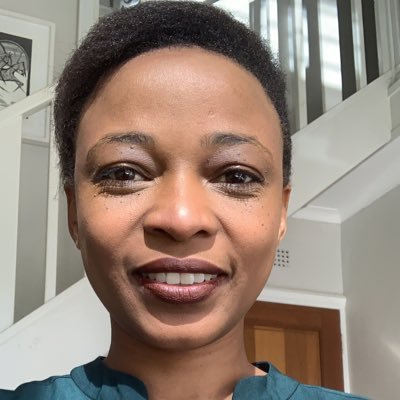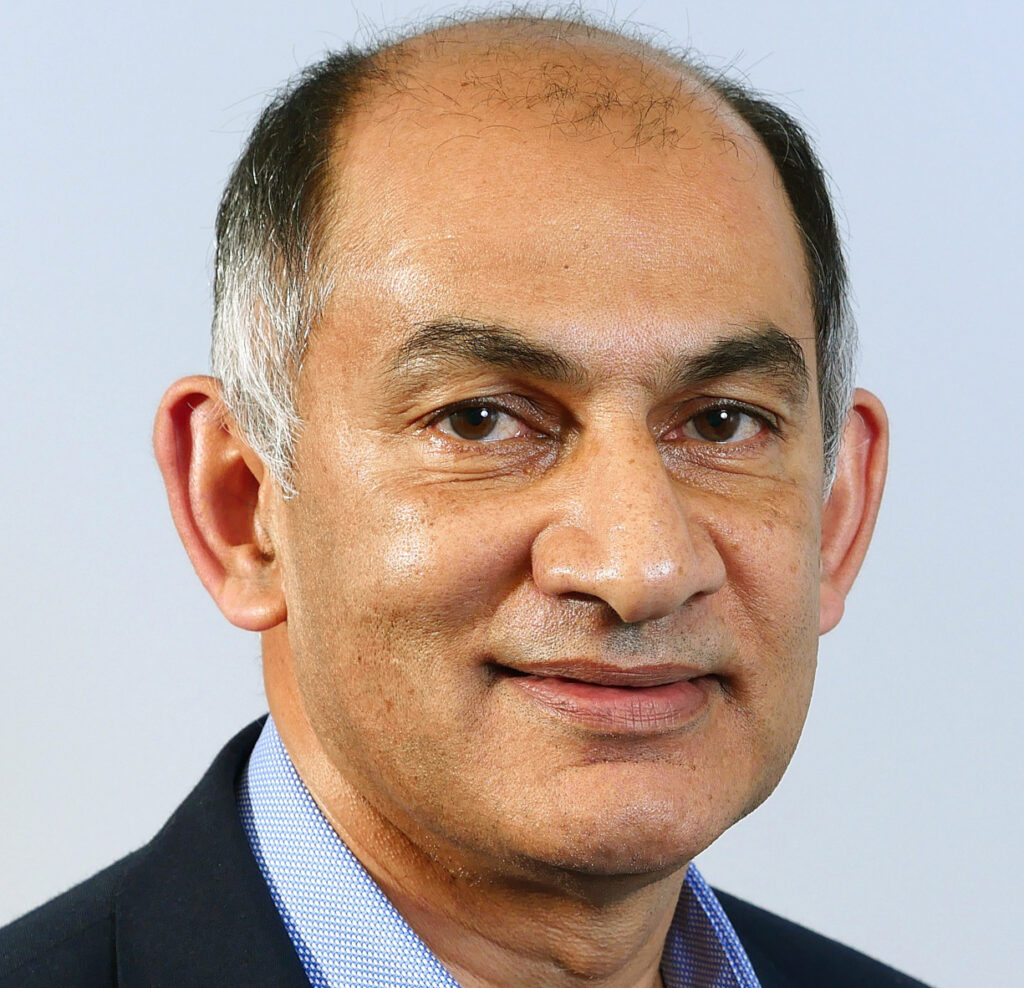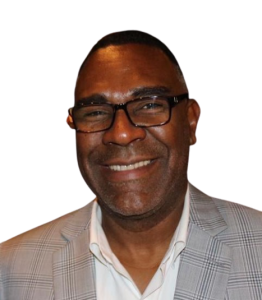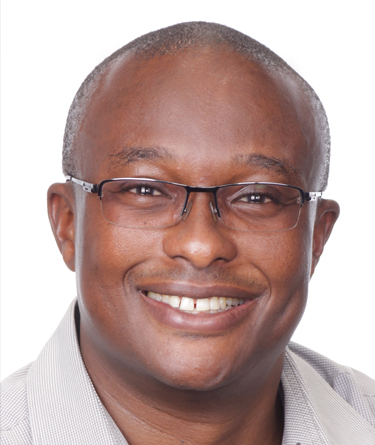Dr Msomi Nhalanhla
 Phemelo Motene
Phemelo MoteneThe webinar proceedings were opened by facilitator Phemelo Motene, who introduced the theme: Advancing Africa’s Biomanufacturing Value Chain through Innovation.
President of AfricaBio, Dr Nhlanhla Msomi apologised for the media launch being rescheduled. He said the AfricaBio organisation was formed in Grahamstown in 2000 to promote biotechnology, and that it enjoys a fruitful partnership with various stakeholders in industry and governments across Africa, including the South African government. After hosting a physical Convention since 2018 in Durban, last year was the first digital Convention, due to Covid-19. It is appropriate that the theme of this year’s Convention is about “Advancing Africa’s Biomanufacturing through Innovation”; the Launch therefore focused on vaccines, especially vaccine nationalism. It is imperative for Africa to be able to develop its own vaccines: Africa has the intellectual resources to do this. Biotechnology can also contribute to the remediation of the environment, which is vital in the context of climate change. Lastly, achieving food security through biotechnology is a major priority of AfricaBio.
What are your thoughts about the past year, and what do we need to advance as a continent?
 Dr Phil Mjwara
Dr Phil MjwaraDr Phil Mjwara, Director-General, Department of Science and Innovation: We should be grateful that we are starting to understand the mutations of the virus, and whether the vaccine is still effective as the new variants emerge. There is capacity in Senegal, Egypt, Tunisia and South Africa, but pooling of resources needs to occur. We have to start identifying the active ingredients and working out how we can take this to the market to achieve self-sufficiency. We also need to fund a science industrial complex that can manufacture vaccines, and governments must indicate that they are willing to purchase them when they are produced.
Why was it necessary to establish the commission on Covid-19?
 Dr Lwazi Manzi
Dr Lwazi ManziDr Lwazi Manzi, Head of Secretariat: AU Commission on Covid-19: President Cyril Ramaphosa was head of the AU when the pandemic struck, and he established the Commission, the African Continental Strategy and a task force to co-ordinate activities and responses. The Africa Medical Supplies Platform was set up, which allowed us as a continent to pool resources and procure Covid-19 tools at the same time as the rest of the world. The Africa Vaccine Acquisition Task Team (AVATT) was also established and has been responsible for securing vaccines; special envoys were responsible for obtaining finance. The commission is responsible for advancing all of these structures that were set up and assessing the extent of the pandemic. We cannot “waste the crisis” and we must ensure that a resilient healthcare system is maintained.
What is the significance of the moment for Biovac?
 Patrick Tippoo
Patrick TippooPatrick Tippoo, Head of Science and Innovation at bio-pharmaceutical company Biovac: The significance of the moment (Biovac has struck a deal with Pfizer and BioNTech to process and distribute over 100-million doses of Covid-19 vaccines a year for the African Union, beginning in 2022) extends well beyond Biovac; there is this dream of Africa becoming self-sufficient so it does not have to rely on the outside world for emergency products. This is the culmination of many years of hard work. Biovac was established by the government as a public-private partnership in 2003. There is an expectation that Biovac will be able to produce Covid-19 vaccines within the next 12 to 18 months.
 Christopher Whitfield
Christopher WhitfieldChristopher Whitfield, Executive Director: Global Patient Solutions – Gilead Sciences: Our company has been producing Remdesivir (a broad-spectrum antiviral medication) for many years now, and our main focus is on HIV. We want to make our products on the African continent and become more self-sufficient. Voluntary licences is one way to do this, and we have long-standing relationships with companies such as Aspen.
How difficult is it to obtain financing for biotechnology in Africa?
 Vuyisile Phehane
Vuyisile PhehaneDr Vuyisile Phehane, Executive at Bio-Economy at Technology Innovation Agency: TIA was established by an act of parliament for the development of innovations that are publicly funded. We have had to understand the global production chain for obtaining financing for biotechnology, which is expensive, as it requires specialised skills and infrastructure. We have had to identify follow-on funders and partners and find ways to continue attracting them. We also have to identify hurdles for marketing products; collaborations are essential to overcome these. South Africa has world-class higher education institutions, and we must use this resource.
AfricaBio has been around for many years; what is required to get things moving?
 Bada Pharasi
Bada PharasiBada Pharasi, Chief Operations Officer of the Innovative Pharmaceutical Association of South Africa (Ipasa): My association is voluntary, and it contributes to uplifting medical health in South Africa. Mandela Month reminds us of our duty to contribute to the good of all. Gilead is a member of Ipasa. We are building an environment that contributes to sustainable healthcare development and preparing Africa for future pandemics. Johnson & Johnson has entered into preliminary agreements with local company Aspen Pharmacare (for the technical transfer and proposed commercial manufacture of their Covid-19 vaccine); Pfizer and Biovac are also collaborating. We believe that AfricaBio is on the right track; South Africa is taking the lead in biotechnology.
How do we begin to address all the challenges that have been spoken about?
Msomi: The key is to build an ecosystem that works for society; all the parts of the value chain need to be interconnected, and this is the role AfricaBio must play. We are very encouraged by the collaboration announced between Pfizer and Biovac. HIV is still a huge issue, and will likely remain after Covid-19 has disappeared; and biotechnology has a huge role to play in managing food security in Africa. Resources are becoming limited, and so we have to choose our priorities carefully, and we must learn from the pandemic.
What have we learned from this crisis?
Mjwara: We must celebrate that we will soon have an mRNA production centre here in Africa, which happened because of intensive dialogue. Strong ecosystems are being built between investors and researchers; and we must invest more in research for the future.
Why do African countries not procure medicine from their own continent?
Manzi: We haven’t produced our own Covid-19 vaccine yet; we don’t have our own innovations yet. We are not benefiting from our own research and development, as there is not enough funding. Consumers are quite well informed about their own food, but they know very little about vaccines. Consumer interest and demand is important, and biotech knowledge must be shared, so that consumers can place the correct lobbying pressure on political systems.
Whose responsibility is it to bring the consumer into this conversation?
Msomi: This is a very important question. The consumer voice sets the tone for what is developed. Scientists have the most dominant voice in research, and AfricaBio is trying to break that mold, break down those barriers, so the voices of the men and women on the street are heard. The voices of the people must be heard!
Why can’t we have our own Gilead in Africa?
Whitfield: I’ve always been passionate about this very topic. There is a big opportunity to partner with big pharma companies; Aspen is busy doing it, but there should be more companies doing it. India took this decision 20 years ago. Many products are just sitting on shelves because the focus is not on places such as Africa, and on African diseases. We need to take the lead from the EU.
What was the difficulty around negotiating pricing for HIV drugs?
Mjwara: I can’t comment on that, but I think the AU must play a market pool role, and approach countries to ask if they can get consumers to buy local medicines — this will create demand. Africa has a relatively small market however; incentives have to be created, so lessons must be taken from the big companies in the US. Remember, you have to build trust among consumers for local products.
What was the silver bullet that Biovac employed?
Tippoo: There is no silver bullet. There was in the past a combination of short-sightedness and limited resources, but Covid-19 has brought these into focus, so there was no choice but to do something. This remarkable set of developments has caused discussions about collaborations all over Africa. What is happening now will have far-reaching implications in the future. Biovac has been investing in R&D, which is the critical pivot point for access to products; regulation and government support also play a big part.
Are we doing enough to encourage and support start-ups?
Msomi: One of the biggest challenges in Africa is the setup of our ecosystem. We are not doing enough to communicate the potential of start-ups to investors. One of the key roles of AfricaBio is to support start-ups. Partnerships are essential; funding on its own is not enough.
Why are we not coming up with the right finance models?
Phehane: Africa must begin to establish itself as an attractive investment destination. We must demonstrate that we believe in ourselves, which will attract foreign investment. There is never enough investment in SMMEs, which need multiple sources of funding if they are to be competitive in the market; this requires more research. We need the correct infrastructure to conduct clinical trials; many patents have not been tested on the African continent, which is a golden opportunity. Partnerships in this regard are essential. SMMEs must resist being bought out by larger companies, but they need funding partnerships to do so.
Is it practical to resist acquisitions?
Pharasi: Many small companies get bought out because they don’t have enough capital. Government must embrace the private sector to prevent this — as has happened in Brazil — and use small companies in the R&D sector. South Africa and India are calling for a waiver of intellectual property (IP) rights for Covid-19 vaccines. What makes it possible for R&D to take place here in South Africa is that it has one of the best clinical research facilities on the continent. At the basis of R&D is the recognition of IP rights; a balance must be struck between access to medicines and protection of IP. The Biovac/BioNTech/Pfizer agreement makes it possible for South Africa to manufacture vaccines from 2022.
Is it true that our government doesn’t want to interact with the private sector?
Mjwara: Government has many sectors! We need to examine our health intervention strategy, and learn from the story of the vaccine regarding this. We also need the right venture capital firms that are prepared to take risks on start-ups that have new products.
Are you optimistic about Africa?
Manzi: How do we fund start-ups with new products? The vaccine market is dominated by developed countries, who can take the risks. It’s all about balancing the risk, and we are doing that here by pooling resources. Yes, I am hopeful, because we have started to set up this model, to do the R&D, set up the markets and create the demand. This is what the commission is going to do; we have the expertise here, and soon we will reap the benefits.
What is your parting comment, Dr Mjwara?
We need to think about how we are going to put the pieces together. We have world-class clinical trials, quality universities, R&D, fill-and-finish (filling vials with vaccines and packaging them); we must put all of this together.
What are the stumbling blocks for start-ups getting funding?
Whitfield: There are funding mechanisms in most developing countries, such as TIA in South Africa. It is very difficult to innovate; 90% of innovations fail. Pooling of investors will help to mitigate the risk, so that TIA does not have to stand alone. In the US there are call-out platforms for new technologies to get exposure and funding.
Closing Remarks
Msomi: It takes a long time to transfer IP, and then to leverage it and make products that can be sold. It’s better to take the route Biovac took, which is much faster. It’s a very emotional topic, and it requires long-term thinking.
Tippoo: Yes, the technology-transfer partnership route is much faster to get products onto the market, and we need to learn from that.
Pharasi: I agree with the other panellists. To develop a vaccine here is a lengthy process. The BIO Africa Convention is a training hub for start-ups and SMMEs; they provide tools that can assist isolated communities. Giants like Gilead must work together with small companies. Ipasa recognises the value of BIO Africa.
Whitfield: In the US there are many investors looking for innovative companies, and I wish this could be replicated here in Africa. Collaborations are essential.
Phehane: I am very optimistic about Africa’s potential. We must not be afraid to venture, and we must invest in ourselves to demonstrate our capabilities. We have the networks in place, and I would like to invite investors to come and see what TIA does.
Msomi closed the proceedings by saying it had been a very rich discussion, which exposed to investors the type of conversations that will take place at the BIO Africa Convention. This is not a Convention for the loudest voice: it is for all stakeholders, especially civil society; we need to align food security with biotechnology, and the Convention will look to craft solutions with international partners. There are opportunities out there, and they must be grabbed, for the sake of everybody.
The BIO Africa Digital Convention 2021 will focus on Africa’s capability and capacity to form effective partnerships with other nations towards bringing vaccine manufacturing to the continent. The digital convention takes place on 23 and 24 August. For more details visit: https://www.bioafricaconvention.com/
To watch the webinar, click on this link:
https://livestream.com/durbanicc/bioafricadigicon21medialaunch/videos/223813675
https://livestream.com/durbanicc/bioafricadigicon21medialaunch/videos/223813675
https://livestream.com/durbanicc/bioafricadigicon21medialaunch/videos/223813675
https://livestream.com/durbanicc/bioafricadigicon21medialaunch/videos/223813675